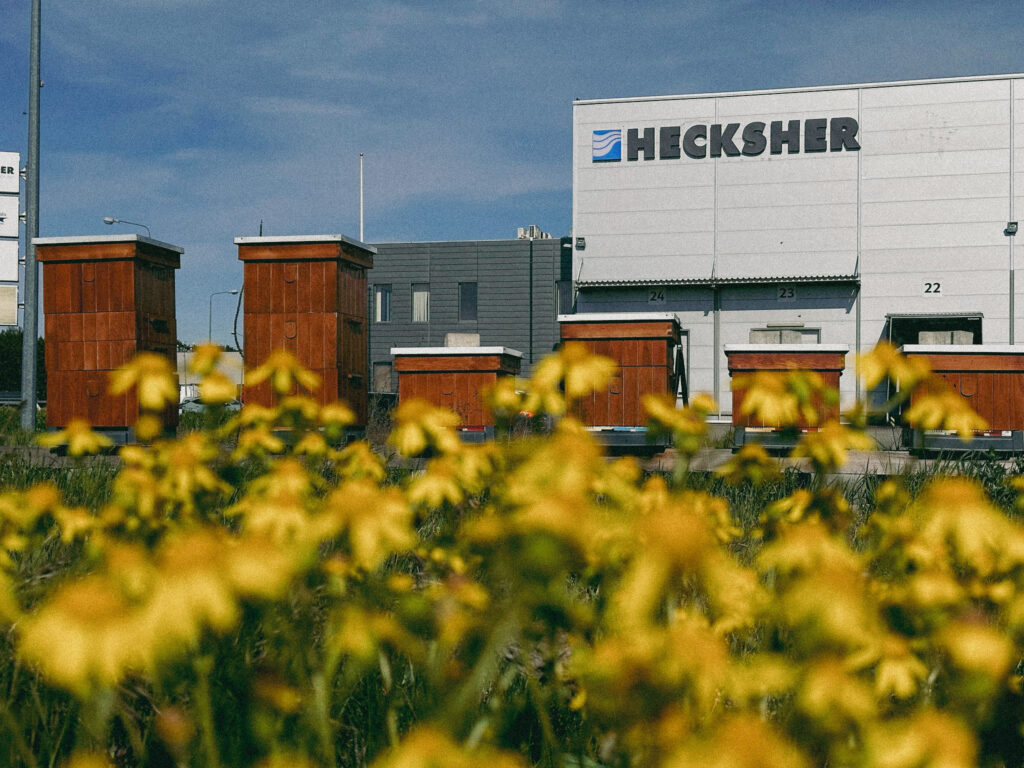What began as a practical question about maintaining unused industrial land evolved into an inspiring biodiversity initiative that now includes a thriving flower meadow and an apiary of 20 beehives. This project, led by Operations Director for Hecksher Poland, Arkadiusz Prejna, shows how logistics and nature can coexist in meaningful ways.
Rethinking industrial land
At Hecksher Poland’s 6,500 m² logistics and office facility in Karpin, just outside Warsaw, the surrounding 9 hectares of industrial land posed a pressing question: how do you manage such a vast area without compromising on sustainability or cost?
“Maintaining that much land with traditional lawns would have required constant mowing, irrigation, and expensive equipment,” Prejna explains. “We wanted a solution that was not only practical but environmentally responsible.”
The answer? A natural flower meadow. Unlike manicured grass, flower meadows require minimal upkeep and no artificial watering. Their benefits extend beyond aesthetics – they enrich the soil, support local ecosystems, and help cool the surrounding area.
From flowers to bees
As the meadow flourished, so too did its ecosystem. Colorful wildflowers began attracting pollinators almost immediately, and with them came a new idea: what if the site could also support an apiary?
“I started looking for someone who could bring the right expertise and passion to this idea,” says Prejna. That search led him to Tomasz Siembida, a seasoned project manager with a love for beekeeping who established the family-run apiary The Four Seasons of Honey in 2017. Their shared values – quality, responsibility, and long-term thinking – formed the foundation of what became a powerful partnership.
In 2024, the two joined forces, and what began as a few hives outside Hecksher Poland’s warehouse has now grown into a larger vision with over 200 hives, including a migratory apiary that follows the bloom across regions.

Bees in unexpected places
Their collaboration challenges conventional thinking about how industrial spaces can be used. “This project proves that an apiary can thrive where concrete dominates,” says Prejna. “It gives new meaning to spaces that would otherwise be considered lifeless.”
Today, 20 hives operate directly on the Hecksher Poland premises, producing high-quality honey while contributing to the broader health of the ecosystem. The company is proud to support the initiative not only with land but also by promoting awareness among employees and customers.
“I believe that such initiatives make sense – because they combine business with care for the environment and bring real value to both people and nature.” says Prejna.
Why bees matter
Beyond their symbolic charm, bees are essential to life on Earth. They are the primary pollinators for nearly 90% of wild flowering plants and more than 75% of the crops that feed the global population. Yet, they are increasingly under threat from habitat loss, pesticides, and climate change.
Recognizing this urgency, the United Nations designated May 20th as World Bee Day, a global reminder of the vital role pollinators plays in food security, biodiversity, and sustainable development.
Prejna encourages individuals and businesses alike to act – whether by planting native wildflowers, raising awareness, supporting local honey producers, or sponsoring a hive.




